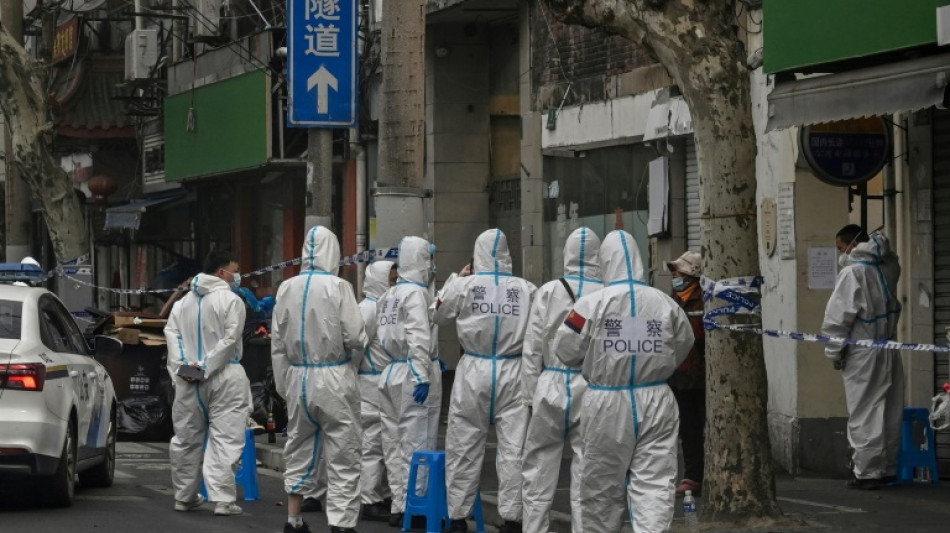

Hazmat suits and panic buying: pandemic images return to China
A Shanghai pedestrian swarmed by hazmat-clad health officials, police tape wrapped around entire blocks, and panic buying at a Shenzhen shopping centre: China is returning to virus controls many hoped it had long left behind.
The country is facing its worst Covid-19 outbreak since the first wave of the pandemic emerged in Wuhan in late 2019.
While the daily caseload is comparatively small, around 5,300 were recorded on Tuesday, the Omicron variant is shaking Beijing's "zero-Covid" strategy -- and that means the return of mass testing and tough restrictions on movement.
Shanghai's famous waterfront, usually buzzing with tourists and locals, fell quiet this week as authorities moved to stamp out a rise in Covid cases in China's biggest city.
Just a handful of masked pedestrians snapped pictures of the skyline as workers were told to stay home, students turned to online classes, and restaurant dining was banned in some districts.
Instead of an all-out lockdown -- imposed in other cities across China during a recent virus resurgence -- Shanghai restrictions were targeted at squashing clusters in specific zones.
But that has left residents picking through a web of local edicts.
"We were informed last night to suspend (dine-in service) and we'll obey, otherwise we would have to shut down if they found out," one restaurant owner in central Shanghai told AFP.
In a neighbouring district, another restaurant owner said the measures were already putting people off eating out.
"We don't have many customers these days," he said, adding that anxiety was running high.
On Douyin -- China's version of TikTok -- one would-be restaurateur complained that the dine-in ban was announced just as she had rented new premises.
"I'm literally going to cry."
- Hazmat guard -
In Shenzhen, the southern city of 17.5 million where a harsher lockdown has been imposed, social media videos showed panic buying at supermarkets where shelves were fast emptying.
Large red plastic barricades blocked access to many compounds and lines metastasized in the gaps between high rise buildings as mass PCR testing rolled out.
China's harsh Covid controls have generally enjoyed support from citizens: the official death toll has remained low and, after the chaotic first outbreak in Wuhan in 2020, life has largely returned to normal.
"Now I'm used to (control measures), it's been a long time," Beijing resident Yan Zhiping told AFP.
"As long as we protect ourselves well, there won't be problems."
But the frequency of Covid restrictions has started to grate on some as debate rises over whether Beijing should adjust its unrelenting zero-Covid policy, especially in the face of the highly transmissible yet less-severe Omicron variant.
In Shanghai, one resident complained online that the city had done "a bad job", accusing the government of blocking people from posting negative comments.
"Preventing and controlling the virus accurately in Shanghai is just a joke, an extremely irresponsible joke," fumed another.
謝-A.Xiè--THT-士蔑報




